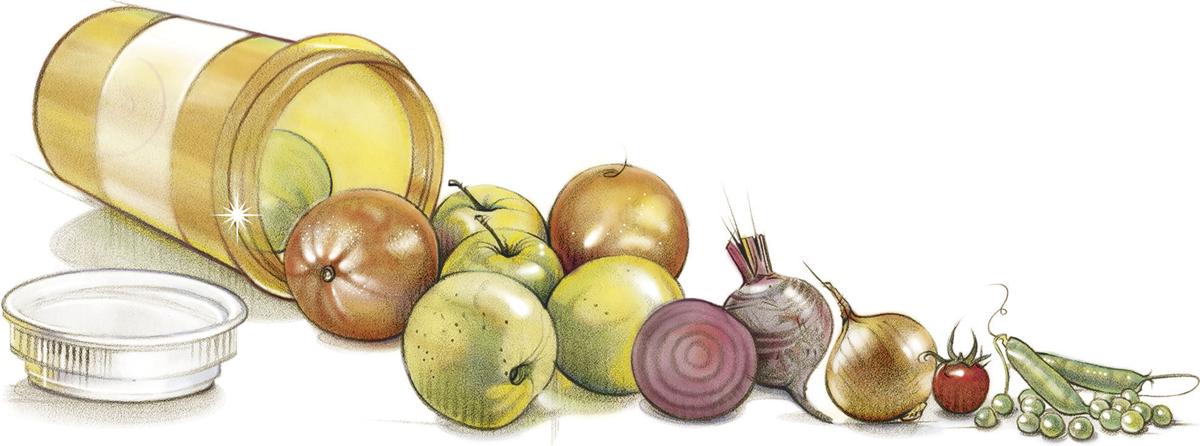We can all take steps to reduce cancer through what we choose to eat, says University of Arizona researcher Cynthia Thomson.
The associate director for cancer prevention and control at the University of Arizona Cancer Center, Thomson will give a public talk next month about diet and cancer as part of the “Bear Down. Beat Cancer” lecture series that the UA Cancer Center is sponsoring in partnership with the Tucson Jewish Community Center.
This free lecture, open to the public, is set for 6:30 p.m. Thursday, April 6, at the community center, 3800 E. River Road.
Thomson is expected to talk about inconsistencies in cancer research studies, as well as give advice about things we can all do quickly to help reduce the risk of cancer.
The talk is the third in a four-part lecture series about trends in cancer research and clinical care. The final talk, about breast cancer, is scheduled for May 4.
The Star recently spoke with Thomson about preventing cancer. The following are excerpts from the interview:
What is new in the area of cancer prevention and diet that we may not have known 5-10 years ago?
We are learning more about what we call personalized nutrition. So, based on someone’s genetics for example, they may benefit from certain dietary practices differently than someone who has a different genetic background.
We are getting to the point now where we’re understanding more about food, metabolism, how it’s metabolized, and how that either protects us or increases our risks for various cancers.
There is a lot of work going on where we can collect people’s urine or their blood, and it can tell us a lot about what metabolites are in their circulation, and what is the relationship with cancer risk. It may not matter just what I eat, it may matter how my body metabolizes it.
What should we be eating?
There are no magic foods. I know we go through periods where people go, “Oh, well broccoli reduces your risk of cancer,” and that might be true that if you put broccoli in a dish and feed broccoli to rats that it can reduce cancer rates.
We may see that if you eat more broccoli, you have a lower cancer rate, but that’s not causal. That doesn’t mean that because you ate broccoli you don’t get cancer, there’s not a cause-and-effect association.
If I tell you dairy reduces your risk of cancer, because a big study comes out, well then you find out, guess what? That dairy in Ireland reduces cancer because the cows were fed a grass-fed diet, and they grazed freely and it was a lower fat cow. But in America when we did that study, we didn’t see that …These studies always have these caveats.
Does sugar cause cancer?
If your blood sugars are high, and you secrete a lot of insulin to try to bring them down. Insulin is a growth hormone and it does promote tumor growth. But, if you have a normal physiology, when you eat, your body releases just enough insulin to get your blood sugars back down in an hour or so.
If you have diabetes or are insulin-resistant, then you’re in a lot more trouble because when you eat, especially if you eat simple sugars, those sugars are going to stay high longer, the insulin is going to be higher and tumors can grow.
What about grocery shopping?
Start in the produce section and fill up at least a third of your cart with vegetables and fruit. If you do that, and you eat those, I guarantee you that by the end of the week you’ve gotten all the fruit and vegetables you need to be cancer healthy.
When you buy cereal, make sure it has less than five grams of sugar and more than eight grams of fiber.
Think of diet as a really low dose of medicine that wards off cancer. Just like you might take a drug to reduce your cholesterol, you eat a healthy diet and all the variety in your diet combined add up to like a big anti-cancer pill that you take every day.
What about organic produce?
While I think organic is better and that obviously if we can avoid pesticides that would be better, in reality, most people don’t eat organic vegetables and fruit.
It’s really not going to matter. If you eat that organic orange, you are going to avoid pesticides, and you’re going to get maybe two milligrams more of vitamin C than if you had bought a pesticide-treated orange. The nutritional value is just not enough to make it worth it. In terms of the pesticides, I say to people, wash your produce. … We know that we can get about 98 percent of pesticides off produce by washing them.
What is the biggest message you want to get across?
We don’t want to lose the enjoyment of food and meals. We want to be able to share meals with our friends and enjoy good times over food.
The American Cancer Society guidelines, the American State of Cancer Research guidelines, tell you to eat more vegetables, to get more fiber, to watch your body weight and keep it healthy and keep it active every day.
If we do all those things, then we know we can cut our cancer risk in half, if not more. ... We know that people who do have all those healthy habits have anywhere from about a 10 percent to a 60 percent lower risk of getting cancer compared to people who don’t follow those guidelines.
Make half of your plate vegetables at every lunch and every dinner.





